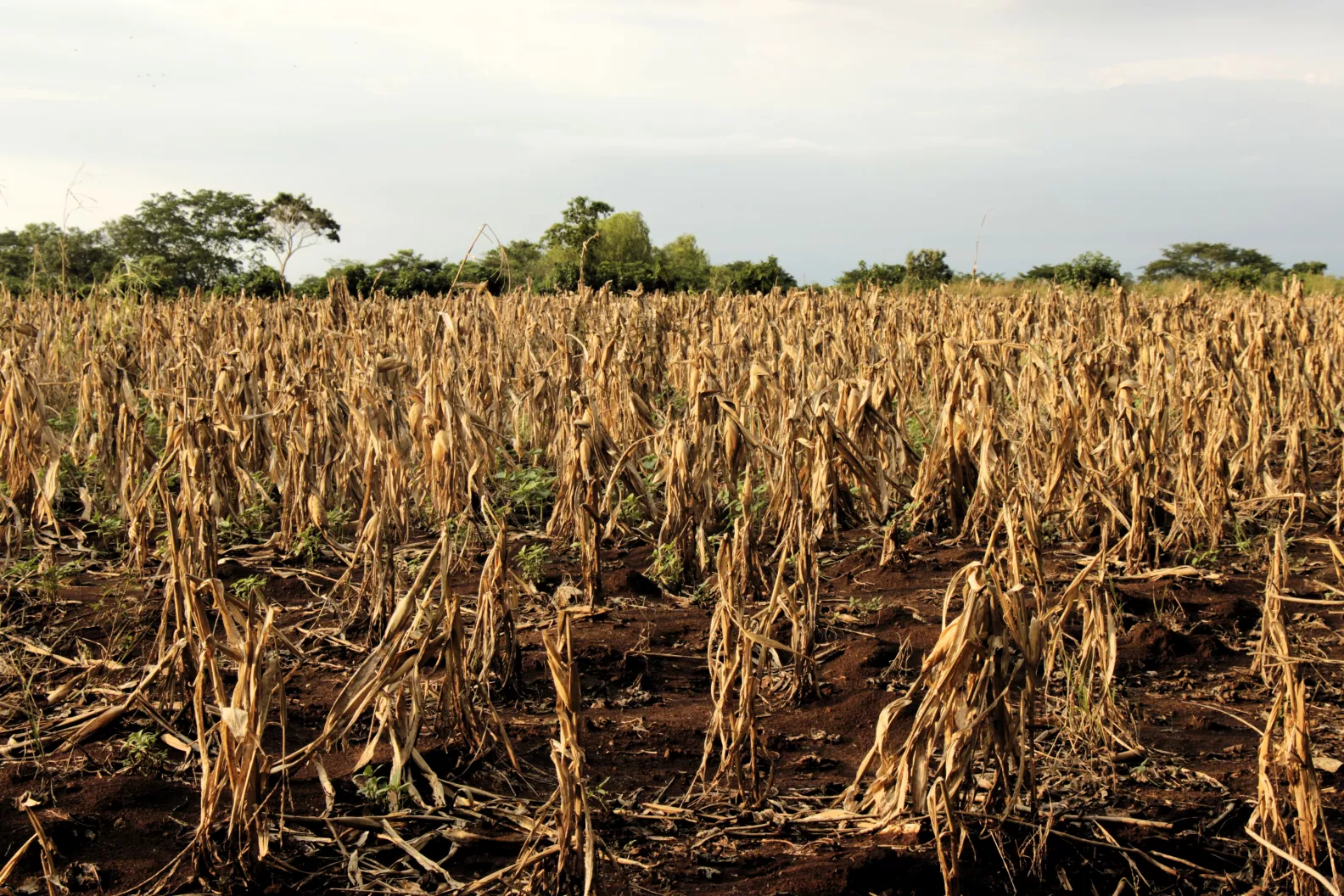a preventable humanitarian drama

Despite being home to more than 70% of biological diversity on the planet and being one of the 18 countries recognized as megadiverse by the United Nations Development Programme (UNDP), Guatemala has the fourth highest rate of chronic malnutrition in the world and the highest in Latin American and the Caribbean according to U.S. Agency for International Development (USAID). In addition, approximately 50 percent of children under the age of five suffer growth delays due to chronic food insecurity with indigenous areas being the most affected. Seventy percent of the indigenous population currently suffer from chronic malnutrition. This is not a problem that solely affects children, but entire families and communities. As Omar Jerónimo states where there is a boy or girl with chronic malnutrition, there is a family with food problems.
The human right to adequate food forms part of the catalogue of rights recognized by the State of Guatemala on all legal fronts – international, constitutional and ordinary legislation -, thus the government has the responsibility to guarantee this right to the entire Guatemalan population. Furthermore, the State of Guatemala has an ample institutional structure that should presume acceptable degrees of validity and effectiveness of this right.
None-the-less, reality shows that guaranteeing the right to food for the Guatemala population is not a priority for the State of Guatemala, even though in 2013 there was a judgement against Guatemala for the violation of the right to food for five minors in Camotán, Chiquimula. The judgment mandated that 10 government institutions take 26 specific measures to restore the violated human rights. However, Mavelita Interiano, a minor who had a judicial order in her favor to guarantee her right to life, died in August of this year due to health complications due to chronic malnutrition. This is not an isolated case, this is the tip of the iceberg of a collective drama just as Centro de Reportes sobre Guatemala (CERIGUA) shows in figures it published: so far this year the Public Health and Social Assistance Ministry reported to September 16 that 9,547 children under the age of five years were treated to for acute malnutrition; health officials also reported to September 9, seventy-seven boys and girls died due to malnutrition.
Due to the alarming rate of malnutrition cases in Guatemala, it is important to know that this disease acts as a vicious cycle because malnourished women have babies with low birth weights which increases the possibility of malnutrition in future generations. Acute malnutrition increases significantly the risk of death and chronic malnutrition has irreversible consequences that can be felt throughout a person’s life, increasing their risk of contracting diseases, stunts growth, physical and intellectual development of the child. The intellectual and cognitive capacity affects their school performance and the acquisition of skills in life, thus inhibiting, the minor’s capacity to be an adult who can contribute to the progress of their community or country through human and professional development. Thus, when malnutrition perpetuates from generation to generation it becomes a serious obstacle to development and sustainability according to figures of the United Nations Children’s Fund (UNICEF).
In light of such a discouraging outlook, it is necessary to delve into the causes as Guatemala has a wide gamma of natural resources, as well as governmental resources destined to guarantee the right to food. According to scientist César Azurdia the bottom of the matter is that wealth is not distributed in a just manner, because our country is one of the most unequal in regards to resource distribution. What happens is that biodiversity is used by developed nations, ones that give it a value added and it stays there. Sometimes it comes back, but one must pay for this. For example, modified seeds and patents. We can also have good corn, but what lands are available to our farmers? Small plots, two small plots… if they have land, so what is that richness if they cannot develop it. This is a topic that goes beyond biodiversity, it is a matter of politics, strategy, resource distribution and justice.
Omar Jerónimo who accompanied the families of Camotán during the legal complaint process for the violation of the right to food agrees with this point when he states: the main cause of food insecurity is due to the lack of public policies that protect and promote the capacity and ways in which families feed themselves. This is key and happens because after there is deregulation on economic and environmental matters, the topic of the populations’ right to property and defining their own development. He also points out the importance of Article 11 of the International Covenant on Economic, Social and Cultural Rights which states that the right to food is put forth as something inherent for the population and that the State should guarantee this, and in the twelfth comment of article 11 he states what should be the ways to access food: one of those is access through purchasing food because you are a salaried worker; another is producing your own food, but when doing so in the short term, with insufficient programs, not transformative, but also undermine the capacity and creativity of the population to feed themselves, and this violates their human rights as such.
Another main cause of chronic malnutrition is campesinos lack of access to land and potable water which Norma Sancir states, many populations were razed during the armed conflict, some returned to their lands, others did not and others were seized. One of the main causes of the war was land dispossession on behalf of the State and its different military governments. Thus, the problem is not just that lands are in the hands of large landowners but that they have the best lands, the plains on the riverbanks where one can have up to three harvests a year because of their proximity to water. Communities who are in the mountains have to wait for rain and suffer the consequences of climate change in the area and on the global level. The few existing water springs are used for potable water and in summer they dry up. Women have to walk three or four kilometers to fetch water. For this reason when a person wants to have a bit of land to plant something this generates conflict. The problem of water turns into a problem of nutrition and for community peace.
The lack of water is also due to deforestation and uncontrolled clearcutting by lumber companies. As César Azurdia states the loss of forests is high, even though the National Forest Institute develops paid incentive programs the lost rate cannot be recovered. Reforestation does not converse biodiversity because only one species of tree is planted and a forest is not comprised of just one species, it is an ecosystem. When trees are cut down we do away with trees, herbs, insects, shrubs, animals, bacteria and microorganisms. When we plant trees, a fragile ecosystem is restored, because a single crop will never replace a mountain.
Another problem that impacts access to land for communities is industrial monocultures, like African palm and others that have expanded in several regions of Guatemala in the last few years which is worrisome. According World Rainforest Movement (WRM), Sayaxché Petén is one of the regions with increased monocultures. Companies have defined lands as optimal for the production of African palm and families who resist selling their lands become surrounded by palm plantations. When companies buy land, they take away the access easement which prevents neighbors from accessing their own lands via paths where they traditionally used to carry out their harvests which forces them to use longer paths which are not in adequate conditions and mean walking for hours to get to their destination. This makes it almost impossible for them to enter their lands to plant and leave to sell their harvest or buy basic goods. Also, campesinos suffer pressure which aims to push them to abandon and sell their lands. There have been reports of burnt and fumigated land and crops as well as theft of harvest.
Inequality in land access and ownership especially affects rural women. According to the Network of Rural, Indigenous and Campesino Women in Central American (RECMURIC), women possess only 15 percent of land in Guatemala, which has disastrous consequences for them, their families, their communities and the country as a whole: The lack of land impedes women from accessing other resources and essential services like credit and technical assistance. Without a plot of land as collateral it is not possible to obtain a formal loan. Also, it excludes them from the majority of state programs for productive investment and technical assistance, which often require beneficiaries to have their own land to produce. On the other hand, land is one of the main factors that condition power relations. It has been demonstrated that women without land are more subordinate to men and participate less in family and community decisions. When women do not have their own assets their ability to safeguard their wellbeing is weaker which makes them more vulnerable to sexist violence. On the contrary, when women exercise their right to land other rights are strengthened, their self- esteem and social acceptation increase. Given the limited possibilities that rural woman have to obtain their own income, owning an asset like land translates into a significant change which allows them to advance in their economic autonomy. It has been shown that this also impacts family wellbeing when women have a say in family spending as they usually prioritize investment in food, health and education. But beyond personal and family benefits, increasing women´s access to land and other productive assets like technical and financial assistance improves agriculture productivity by up to 30% which would help eradicate hunger and rural poverty. This would allow for more food and lower market prices, contributing to attain food sovereignty. This would also improve employment and income levels in the local economy.
Food insecurity and its consequences constitute a problem of great magnitude in which there is a need for solid commitment and action on behalf of the State to guarantee the rights that are being violated. However, this is still to come, causing a vacuum that with great effort and facing risks and threats, human rights defenders try to fill accompanying the most disadvantaged populations in claiming their rights in general and the right to food in particular. Nonetheless, this work of incalculable value is threatened in contexts where hostility and violence towards human rights defenders is very present, especially when there are legal resolutions in favor of indigenous communities and peoples.
